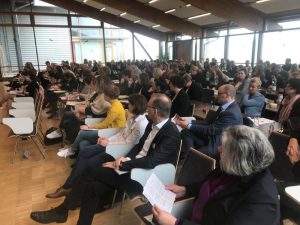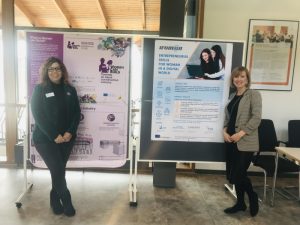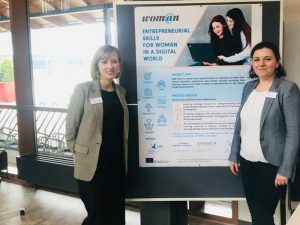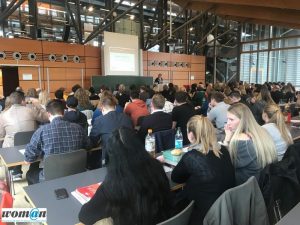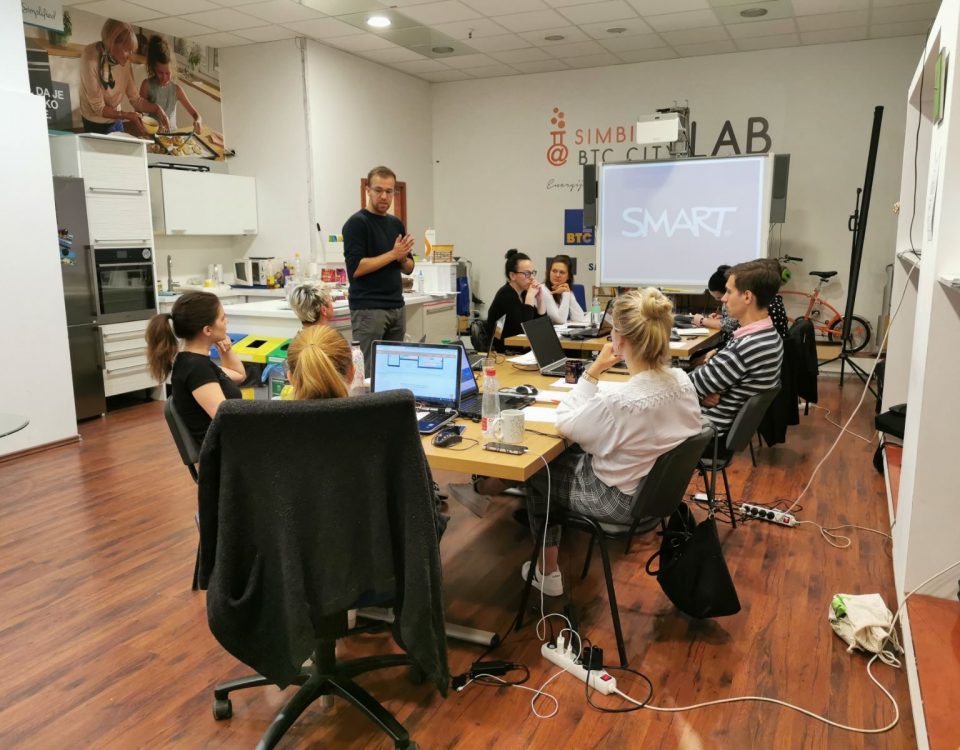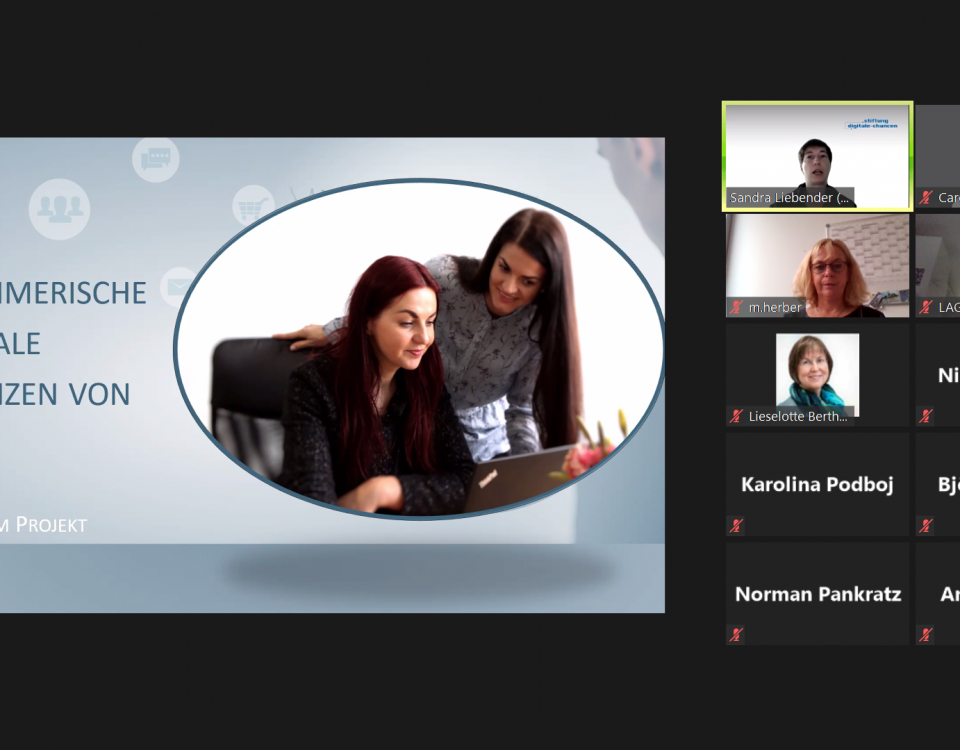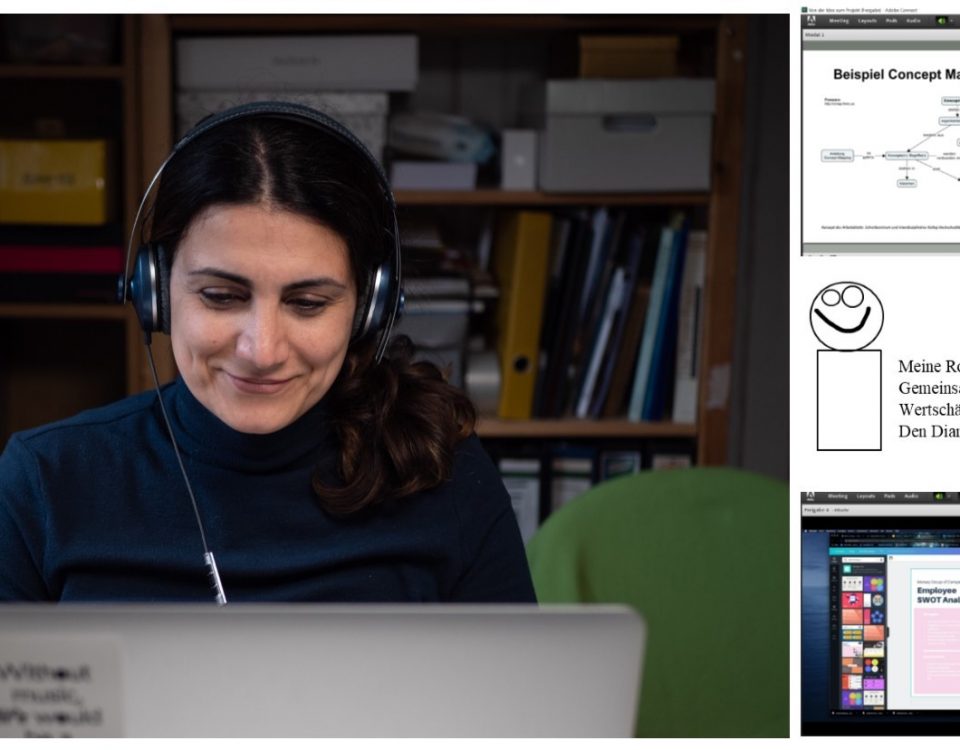
Kick-Off-Meeting der Projektpartner in Berlin
Februar 23, 2019
Partnertreffen in Griechenland
September 6, 2019Förderung der Chancengleichheit von Frauen im Erwerbsleben
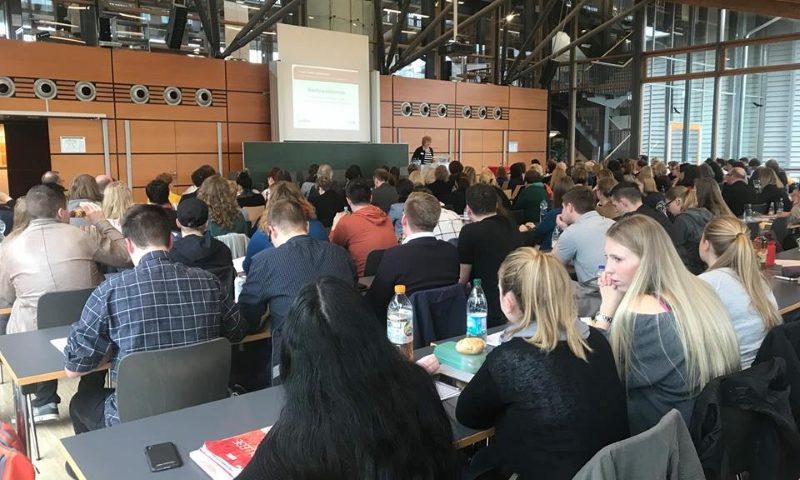
On 5th of April members of Entrepreneurial Skills for Woman in a Digital World – an Erasmus+ funded project – took part in an international conference Woman.Work.Lifestyles organized by the University of Applied Labour Studies in Schwerin, Germany.
The key aim of the conference was to engage in dialogue on employment opportunities and achievements of and for women. This year’s expert conference focussed on women in the workforce in the context of social, economic and technological change. Conference participants and key presenters discussed how to discover, tap and maximize women’s employment potential, how to support women in making the best of their employment opportunities.
Together with representatives from the UK, Spain and Germany, the Rural Internet Access Points Association was invited to share best practises from its EU funded projects and to share insights gender equality and woman empowerment practices. Each organization overviewed its efforts to improve employability skills of women and increase their participation in the labour market. A number of interesting projects was highlighted during the conference. Fundacion Laboral de la Construccion from Spain introduced project aiming to overcome cultural barriers and increase women’s interest in construction industry.
Since new skills and competences are needed to effectively cope with the changing labour market, Entrepreneurial skills for Woman in a Digital World project aims to create more opportunities for educators of adult non-formal learning education institutions and women through providing free courses, tools and guidance for career opportunities. Four partners coming from Lithuania, Germany, Slovenia and Greece have been implementing the project since December last year.
A three-step activity is being implemented within the project:
- Learning strategy focused on entrepreneurship and a project based approach with integrated ICT learning;
- A training program with educators and disadvantaged women to strengthen project management and ICT skills;
- An e-guidebook to facilitate the use and adoption of training materials in diverse context of non-formal learning settings.
Currently, the consortium of partners is focused on developing learning strategy for two main project target groups: educators of non-formal adult learning institutions and women. The strategy adopts a project-based approach to learning and uses three interconnected learning pathways: project management, ICT learning and entrepreneurship. Personnel training will be a mix of these three strategies to strengthen their creativity, initiative, tenacity, teamwork, problem-solving as well as take advantage of information, communication and technology. The learning strategy will introduce the framework of training, will define key learning standards, competences areas, evaluation tools and training modules. The strategy will be ready at the end of May of this year.


